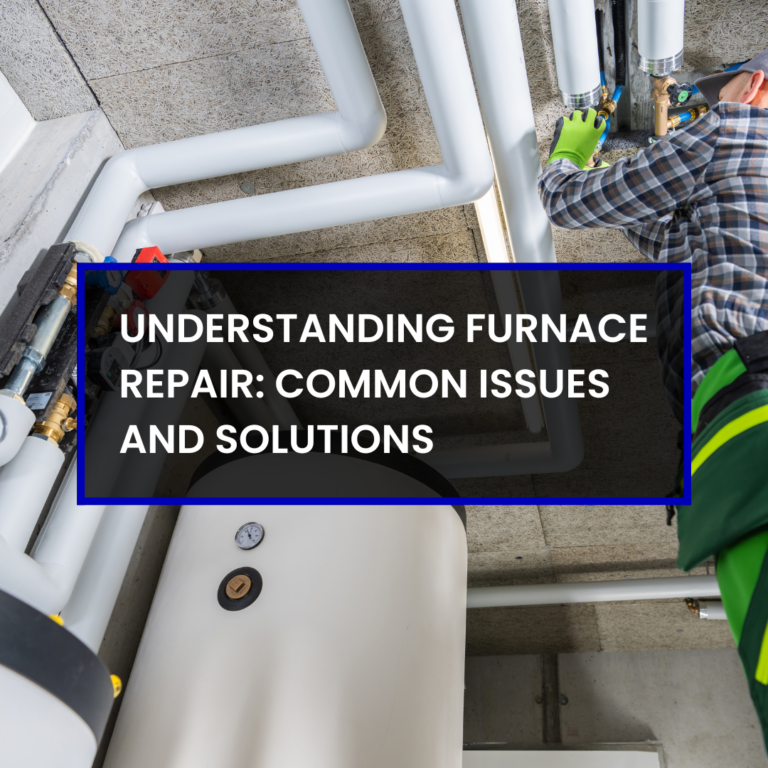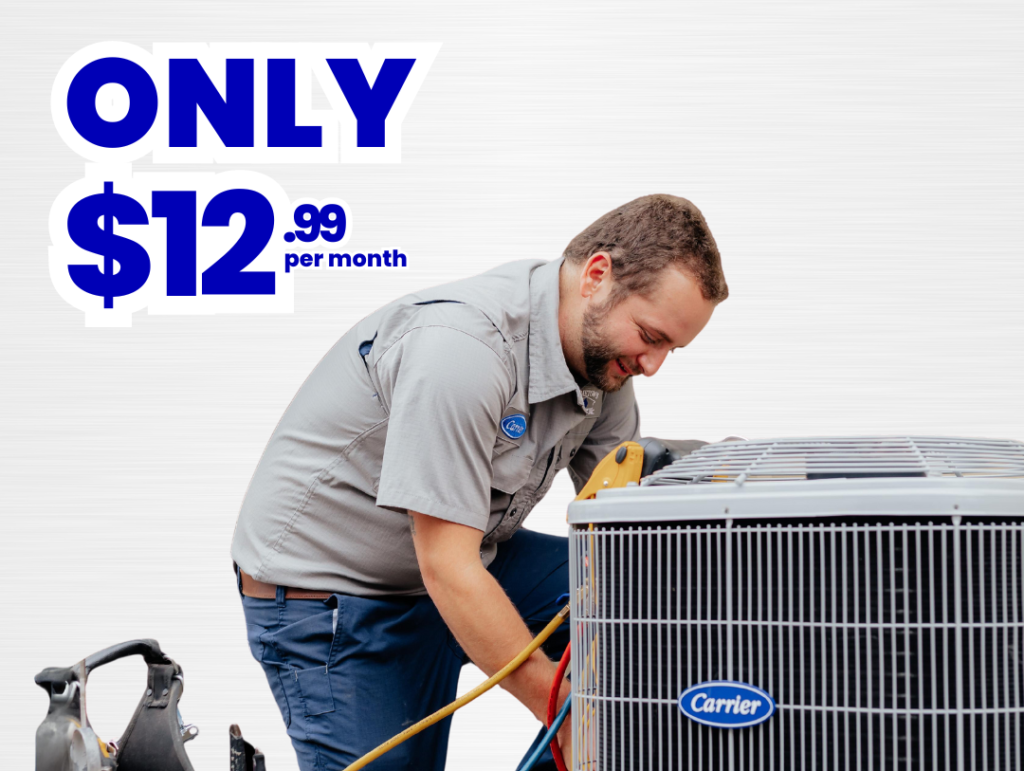Furnace repair is a critical aspect of maintaining a comfortable and safe home environment, especially in colder climates. A well-functioning furnace not only provides warmth but also ensures air quality and energy efficiency. Understanding the basics of furnace operation, common problems, and maintenance requirements can help homeowners make informed decisions about their heating systems.
The Importance of Timely Furnace Repair
Timely furnace repair is crucial for maintaining a comfortable and safe home environment. Ignoring minor issues can lead to more significant problems, resulting in costly repairs or even complete system failure. Prompt attention to furnace problems ensures efficient operation, prolongs the lifespan of the unit, and maintains air quality in your home.
Recognizing the Signs of Furnace Issues
Homeowners should be aware of signs indicating furnace repair is needed. These include unusual noises, a decrease in heating efficiency, frequent cycling, and the presence of strange odors. Early detection of these signs can prevent more extensive damage and ensure your furnace remains functional and efficient.
Common Furnace Problems and Their Solutions
Furnaces, like any other household appliance, are prone to a range of issues that can affect their performance and efficiency. Understanding these common problems and their potential solutions can help homeowners manage their furnace repair needs effectively.
Inadequate Heat Production
Inadequate heat production is a common complaint among homeowners. This issue can stem from several sources, such as a clogged air filter restricting airflow, a malfunctioning thermostat not signaling the furnace correctly, or issues with the furnace’s burner or pilot light. Sometimes, the problem may be as simple as a tripped circuit breaker or a closed valve. To resolve this, homeowners should first check and replace the air filter if needed, ensure the thermostat is set correctly and functioning, and inspect the furnace’s pilot light or ignition system. If these steps do not resolve the issue, it may be time to call a professional for a more thorough inspection and repair.
Persistent Noises During Operation
Persistent noises during furnace operation are often indicators of underlying mechanical issues. Banging or popping noises can result from expanding and contracting air ducts, while whistling or humming might indicate airflow restrictions or electrical problems. Grinding noises typically suggest issues with the furnace’s blower motor or bearings. To address these noises, homeowners should inspect air filters and vents for blockages, and ensure all registers are open and unobstructed. If the problem persists, it’s advisable to turn off the furnace and call a professional, as continued operation can cause further damage.
Frequent Cycling: On and Off
Frequent cycling, where the furnace turns on and off more often than normal, is usually a sign of a malfunctioning thermostat, a clogged filter, or improper airflow. This not only reduces the furnace’s efficiency but can also lead to wear and tear on its components. Homeowners should start by checking and replacing the air filter if necessary. They should also ensure the thermostat is working correctly and not influenced by external heat sources or drafts. If these steps don’t solve the issue, it may indicate a more significant problem with the furnace’s internal components, requiring professional assistance.
The Blower Continuously Runs
A blower that continuously runs can significantly increase energy usage and wear down the furnace. This issue is often caused by a faulty fan limit switch or problems within the furnace’s control board. Homeowners should first check the thermostat settings to ensure it’s not set to “fan continuous.” If the issue isn’t with the thermostat, it’s likely a problem with the furnace’s internal controls. This is a more complex issue that typically requires the expertise of a professional technician for diagnosis and repair.
Furnace Maintenance Tips
Regular maintenance is crucial in extending the life of your furnace and ensuring its efficient operation. Simple tasks like cleaning and filter replacement can significantly impact the furnace’s performance and help prevent common issues.
Regular Cleaning and Inspection
Regular cleaning and inspection of your furnace are vital for its efficient operation. Homeowners should annually inspect their furnaces, ideally before the start of the heating season. This includes checking the heat exchanger for cracks or signs of wear, inspecting and cleaning the burner and flame sensor, and ensuring the blower motor is functioning correctly. Cleaning the internal components, such as the blower and flame sensor, can prevent buildup that may affect the furnace’s efficiency. It’s also important to ensure that the area around the furnace is clear of debris and flammable materials.
Replacing Filters
Replacing the furnace filter is one of the most straightforward yet crucial maintenance tasks. A dirty filter restricts airflow, forcing the furnace to work harder, which can lead to increased wear and energy use. Filters should be checked monthly and replaced at least every three months, or more frequently if you have pets, smoke indoors, or have a high level of dust in your home. Using the correct size and type of filter as recommended by the furnace manufacturer is also essential for optimal performance.
Ensuring Proper Ventilation
Ensuring proper ventilation is critical for both efficiency and safety. Blocked or restricted air supply can not only reduce the efficiency of your furnace but also lead to dangerous conditions such as the buildup of carbon monoxide. Homeowners should regularly inspect and keep clear all vents and air intakes, ensuring they are not obstructed by furniture, curtains, or other household items. It’s also important to have a functioning carbon monoxide detector near the furnace to alert of any dangerous emissions.
When to Call a Professional for Furnace Repair
While basic maintenance and minor troubleshooting can often be handled by homeowners, there are scenarios where it’s essential to call in a professional. Understanding the difference between minor issues and those that require expert intervention is crucial for both safety and the longevity of your furnace.
Identifying Complex Issues
Some furnace problems, such as those involving the gas supply, electrical components, or the internal mechanics of the furnace, require the expertise of a professional. If you notice gas odors, persistent and unexplained noises, or if the furnace fails to heat despite basic troubleshooting, it’s time to call a technician. Professionals have the training and tools to safely diagnose and repair complex issues, ensuring your furnace operates safely and efficiently.
The Benefits of Professional Furnace Repair Services
Professional furnace repair services offer numerous benefits. Experienced technicians can provide a comprehensive assessment, accurately diagnose issues, and perform repairs safely and efficiently. They also have access to the necessary tools and replacement parts, ensuring repairs are done correctly. Choosing a professional service ensures your furnace is handled with expertise, reducing the risk of recurrent problems and extending the life of your unit.
Choosing the Right Furnace Repair Service
Selecting a competent and reliable furnace repair service is crucial for ensuring effective and safe repairs. A good service provider not only fixes the immediate problem but also helps in prolonging the life of your furnace.
What to Look for in a Service Provider
When choosing a furnace repair service, it’s important to consider several key factors. Look for a provider with proper licensing and certification, as this indicates they have met industry standards for training and expertise. Check online reviews and ask for referrals to gauge the provider’s reputation and quality of service. Check out our customer reviews!
Understanding Repair Costs
Furnace repair costs can vary significantly based on the complexity of the issue and the parts required for the repair. It’s essential to understand that opting for the cheapest service may not always be cost-effective in the long run. When inquiring about costs, ask for a detailed breakdown, including labor, parts, and any additional charges. This transparency helps in avoiding hidden costs. Understanding these factors will help you make an informed decision and avoid surprises with the bill.
Questions to Ask Before Hiring
Before hiring a furnace repair service, it’s essential to inquire about their experience and expertise in the field. Ask how many years they have been operating and whether they have specific experience with the type of furnace you have, as different models and brands may have unique requirements. Ensure they are fully licensed and certified for HVAC work, which not only guarantees professionalism but also compliance with safety standards. Discuss their diagnostic process to understand how they identify and resolve issues, as a thorough and systematic approach is crucial for effective repairs. Additionally, inquire about their availability for emergency repairs, as quick response times are vital for urgent heating issues, especially during cold weather periods.
Ensuring the Longevity of Your Furnace
The longevity and optimal performance of your furnace hinge on regular maintenance and timely, professional repairs. Proactive steps in caring for your furnace not only prevent sudden breakdowns but also enhance its efficiency, thereby reducing energy costs. Regular servicing, promptly addressing repair needs, and working with skilled professionals are key to maintaining a safe, comfortable, and warm home environment. Remember, investing in quality furnace care and repair services is an investment in the comfort and safety of your home.
Frequently Asked Questions
How often should I replace my furnace filter?
Furnace filters should be checked monthly and replaced at least every three months. If you have pets, smoke indoors, or live in a dusty area, you may need to replace them more frequently.
What should I do if I smell gas near my furnace?
If you smell gas, it’s crucial to immediately turn off the furnace, evacuate the area, and call a professional technician for urgent inspection and repair.
Can I perform any furnace maintenance myself?
Yes, homeowners can perform basic maintenance like replacing filters, ensuring proper ventilation, and regular cleaning and inspection of the furnace.
Are there any risks associated with DIY furnace repairs?
Yes, DIY repairs, especially on gas furnaces, can be hazardous due to the risk of gas leaks, electrical faults, and improper handling. Complex repairs should be left to professionals.
How does timely furnace repair save me money?
Addressing issues early prevents them from escalating into bigger, more expensive problems, reduces energy consumption, and extends the lifespan of the furnace.





